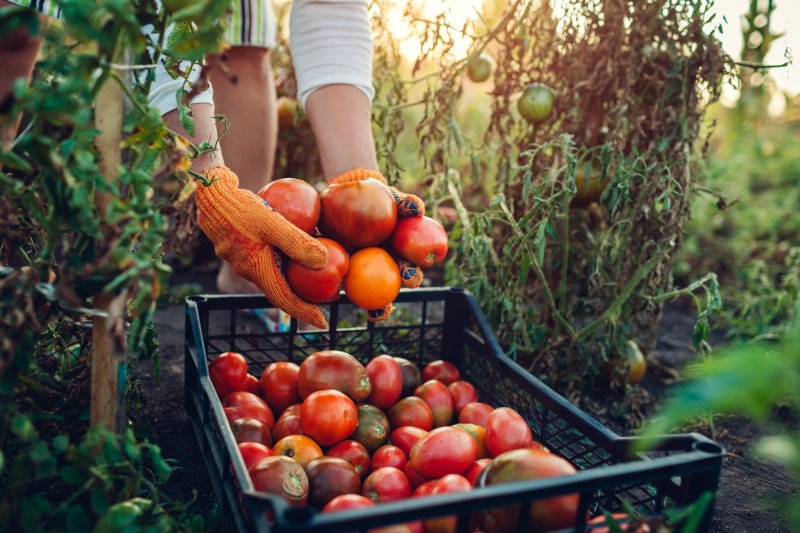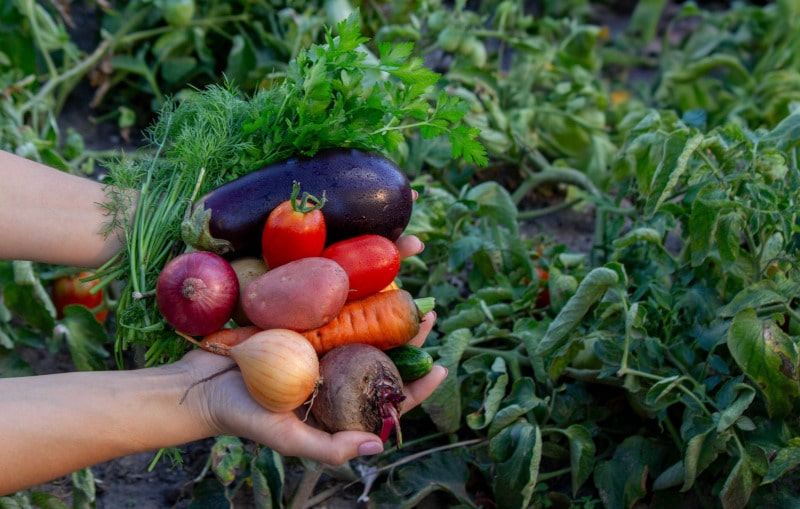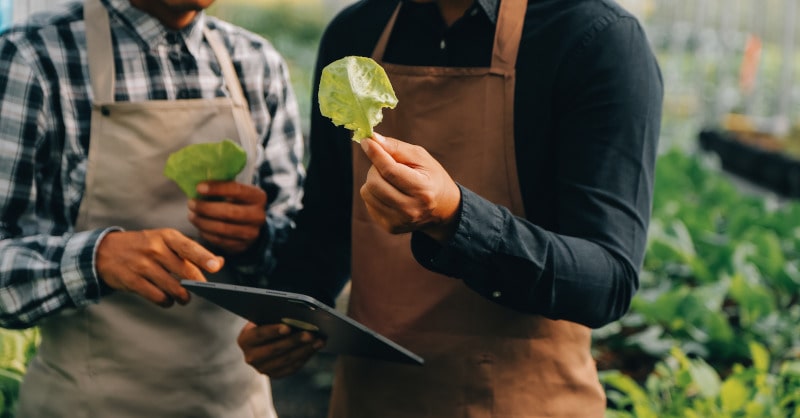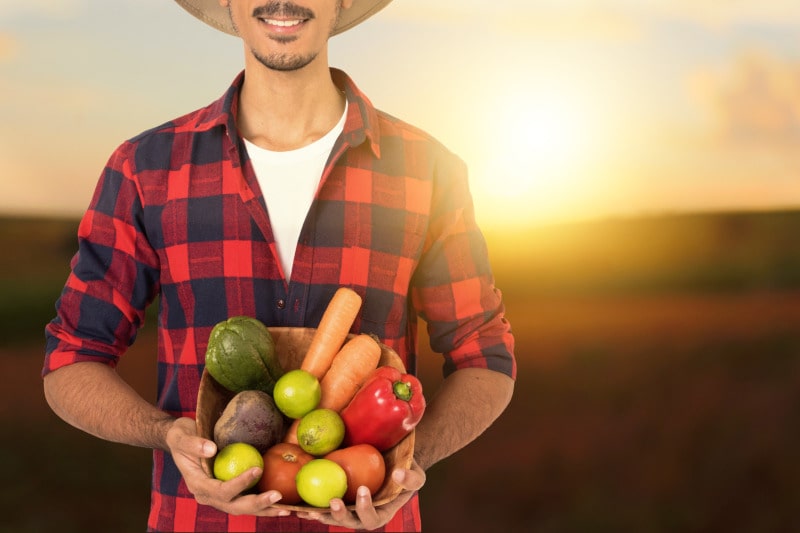In recent years, the conversation about food and sustainability has become very relevant. But do we really know what it entails? More and more people are opting for a diet that is not only healthy for them, but also environmentally friendly.
This approach prioritizes the consumption of natural, organic products that have been grown in a way that does not harm the environment. In addition, attention is paid to how food reaches our tables, promoting fair trade practices and avoiding the use of synthetic components.
Content
The Relationship between Food and Sustainability
Strategies to Improve Nutrition and Sustainability
Tips for Improving Nutrition and Sustainability
2. Reduce Consumption of Foods of Animal Origin
3. Consume seasonal, local and nearby products
4. Choose Agroecological Products in Bulk
Food and Sustainability: A Conscious Commitment
The Relationship between Food and Sustainability
With so much information, it’s key to find an approach that suits our individual needs. You can also rely on a Nutrition App to help you manage your diet and achieve your goals safely and effectively. Remember, taking care of your health is a daily commitment that is worth it.

Food and sustainability are not just about what we eat, but about the entire process involved in producing, distributing and consuming food. There are very clear links between food and sustainability, in fact between the food we eat and the balance of our environment and the health of the planet.
Several studies have shown that a healthy diet is also generally more sustainable. Therefore, choosing organic, local and seasonal foods is not only beneficial for our health, but also for the environment.
Food is considered sustainable when the environmental impact during its production is minimized, biodiversity is respected, the depletion of natural resources is avoided and it contributes to food and nutritional security.
To achieve this, having the advice of a professional nutritionist can be of great help, especially if your goal is to lose weight. An expert can guide you in selecting foods that not only benefit your health, but are also environmentally friendly.
Strategies to Improve Food and Sustainability
Food production is a key factor affecting the environment. Developed countries are taking steps to make food systems more sustainable. The European Commission, for example, has implemented the “From Farm to Fork” strategy to create fair, healthy and environmentally friendly food systems. This strategy is based on principles such as:
- Positive or neutral environmental impact: Reduce emissions and the ecological footprint of food production.
- Climate change mitigation: Adapting to climate impacts and reducing biodiversity loss.
- Food security and public health: Ensuring access to sufficient, safe and nutritious food for the entire population.
- Fair trade: Promoting practices that generate fair economic returns and competitiveness in the food sector.

Tips for Improving Food and Sustainability
To support these goals, I share with you some practical tips that you can apply in your daily life:
1. Avoid Food Waste
Reducing food waste is essential for a more sustainable diet. An effective way to achieve this is to plan your shopping by making a list based on a weekly menu. This way, you buy only what you need, avoid buying extra products and save money.
Plus, organizing your pantry and fridge well can help reduce waste. Put older items at the front and freeze foods properly to extend their shelf life. That way, you can use them in your future meal planning without wasting.
2. Reduce Consumption of Foods of Animal Origin
In developed countries, meat consumption has reached unsustainable levels. It is not a question of eliminating it completely, but rather of opting for a high-protein diet , that is, for quality products and prioritising plant-based proteins. Vegetable drinks, legumes and nuts are excellent sources of protein that can partially replace meat.
It is important to note that livestock, especially cows, emit a significant amount of greenhouse gases, mainly methane, which contribute to climate change. In addition, the fecal waste from these animals can filter into aquifers, affecting the quality of water and, ultimately, that of the food we consume.
3. Consume seasonal, local and nearby products
Nowadays, it is easy to find fruits, vegetables and greens all year round, regardless of their season. This is due to the importation of food and the use of advanced preservation technologies. However, these processes increase the costs and carbon footprint of the products.
Choosing seasonal and local products not only improves food and sustainability, but also ensures that we consume food at its optimal ripeness, with all its nutrients intact. In addition, supporting local producers promotes the local economy and reduces pollution associated with transporting food from long distances.
4. Choose Agroecological Products in Bulk
Agroecological products come from crops that respect the environment, without the use of chemicals that can harm health or the environment. These foods offer high-quality nutritional benefits , since the nutrients are transferred directly from the soil to our body without alterations.

Additionally, opting for bulk products significantly reduces the use of single-use packaging. Bringing your own reusable containers not only reduces waste, but also allows you to buy only the amount you need. Nuts, for example, are a great option for buying in bulk.
Food and Sustainability: A Conscious Commitment
By consciously choosing the foods we eat, we are making decisions that directly affect the environment. Sustainable food promotes self-sufficiency and minimizes the consumption of products from remote areas, helping to maintain biodiversity and the balance of our environment.
Ultimately, food and sustainability go hand in hand in an effort to be in harmony with the environment. By adopting a more sustainable diet, we are also supporting the rural economy and strengthening trust between producers and consumers. Making the transition to a diet that respects our environment is a conscious and rewarding process that reinforces our commitment to the planet.
Plus, with a free Nutrition APP , you can access resources that make it easier to change towards healthier and more environmentally friendly habits. Remember, every choice counts and together we can contribute to a more sustainable future.
Your well-being is the best investment!

